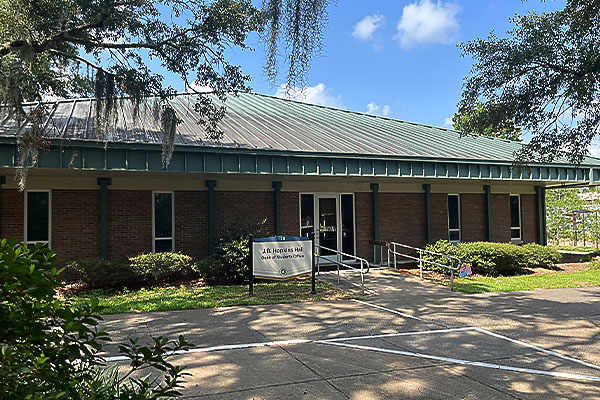Advisor Toolkit

As stated in UWF's Regulation 3.010, an advisor is any support person, advocate, or legal representation the student chooses at their own expense and initiative. This toolkit will address the role of Rights and Responsibility Advisor and how they can participate in the conduct process.
What is Included
What is a Hearing?
Hearings are run by the Office of Student Rights and Responsibilities (SRR) with assistance from the UWF Hearing Board. The UWF Hearing Board is comprised of 50% professional members and 50% current UWF students. Hearings are held to ensure that all matters concerning the Student Code of Conduct and Student Code of Academic Conduct are dealt with swiftly and appropriately in order to uphold the highest community standards possible.
The hearing is the formal process in which a charged student is able to present information defending himself or herself to the Hearing Board. In addition, the charging party has the ability to present evidence to support the charges. The Hearing Board listens to all parties and makes an impartial decision.
Role of an Advisor
As stated in UWF Regulation 3.010, an advisor is any support person, advocate, or legal representation that the student chooses at their own expense and initiative. The advisor is able to participate in the educational conference and hearing proceedings.
The Advisor:
- Student conduct hearings: may be present to advise the charged student and may participate in the presentation of relevant information and questioning of witnesses.
- Academic misconduct hearings: may not address any person in the hearing except the student and, therefore, cannot speak on behalf of the student, question witnesses, or serve as a witness.
- Any hearing type: participation must take place in a manner that does not disrupt the educational conference or hearing. Advisors who do not maintain professional decorum may be asked to leave the educational conference or hearing, and the meeting will continue in their absence. Advisors may not serve in any other role in the conduct process, including as an investigator, decider of fact, hearing officer, member of a Hearing Board convened to hear or decide the charge, or any appeal.
Notifying the SRR of an Advisor's Participation
The advisor's name and role must be provided to the Office of Student Rights and Responsibilities in writing at least three (3) business days before the scheduled meeting/hearing.
- If the advisor is an attorney, this must be disclosed at least three (3) business days prior to the scheduled meeting/hearing, as the University attorney will also be present at the meeting/hearing.
- Advisor Notifications (including attorney participation) can be made via email to SRR.
During the Hearing
Presentation of Information
The Advisor:
- Student conduct hearings: may participate in the presentation of relevant information. At this time, the advisor may present information relevant to the hearing and assist the charged student in creating an opening statement.
- Academic misconduct hearings: may not address any person in the hearing except the student and, therefore, cannot speak on behalf of the student, question witnesses, or serve as a witness.
Witness Questioning
The Advisor:
- Student conduct hearings: may be present for the questioning of witnesses. At this time, the advisor may ask a witness or the charged students, any relevant questions.
- Academic misconduct hearings: may not address any person in the hearing except the student and, therefore, cannot speak on behalf of the student, question witnesses, or serve as a witness.
Opening Statements
Opening statements are crucial to the hearing process. All parties, including witnesses, charged respondents, and, in some cases, charging parties, are allowed and encouraged to make opening statements.
An opening statement is the charging party's first opportunity to address the Hearing Board about the events that took place. The reading of each party's opening statement is generally followed by questioning by the Hearing Board for clarification.
When working with a charged student to create an opening statement, there are a few things to consider.
- You will want to ensure the charged student details the event(s) that they participated in. Be sure to include as much detail as possible.
- You will want to be sure to include details on what happened leading up to the event, how the event made you feel and how you reacted.
- It is important to apologize and discuss how the event in question impacted the charged student and how they will act differently in the future.
Campus Resources and Regulations
| Campus Resources | Contact | Building Location |
|---|---|
| Counseling and Psychological Services | |
| Care Services | |
| Title IX Programs |




